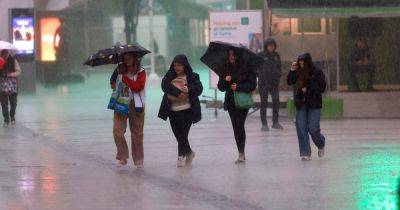UK could be hit by tropical diseases in next decades, health experts warn
Government health experts have warned that Asian tiger mosquitoes, known for carrying dengue fever, could become a common sight in England by the mid-century due to climate change. These insects, recognised by their striped bodies, have been spreading across Europe due to warmer conditions and human transportation.
The UK Health Security Agency (UKHSA) has issued a report on the health impacts of climate change, warning that London could see transmissions of dengue fever by 2060. The agency also predicts that the mosquito could be widespread across England in the 2040s.
In addition to this, officials have stated that other infectious diseases spread through food or water could become more common, with the risk of more pandemics increasing. The dangers from extreme heat and flooding are also expected to worsen, impacting both physical and mental health.
UKHSA chief executive Professor Dame Jenny Harries said: "Things that when I trained many years ago were called tropical diseases will actually become national domestic diseases. In the summer of 2022, UK temperatures reached above 40C for the first time on record.
"We had nearly 3,000 excess deaths recorded across that extended heat period while many other countries have experienced bouts of intense and prolonged heat in recent months.
"Using a high emission scenario, UK health-related deaths are estimated to increase by over 100% in the 2030s, over 500% in the 2050s, and over 1,000% by 2070."
Food prices are also likely to become more volatile as much of what the UK imports is from regions sensitive to climate impacts such as drought.
Wildfires producing toxic smoke are also expected to occur more frequently during the hotter, drier summers. The elderly, young children








